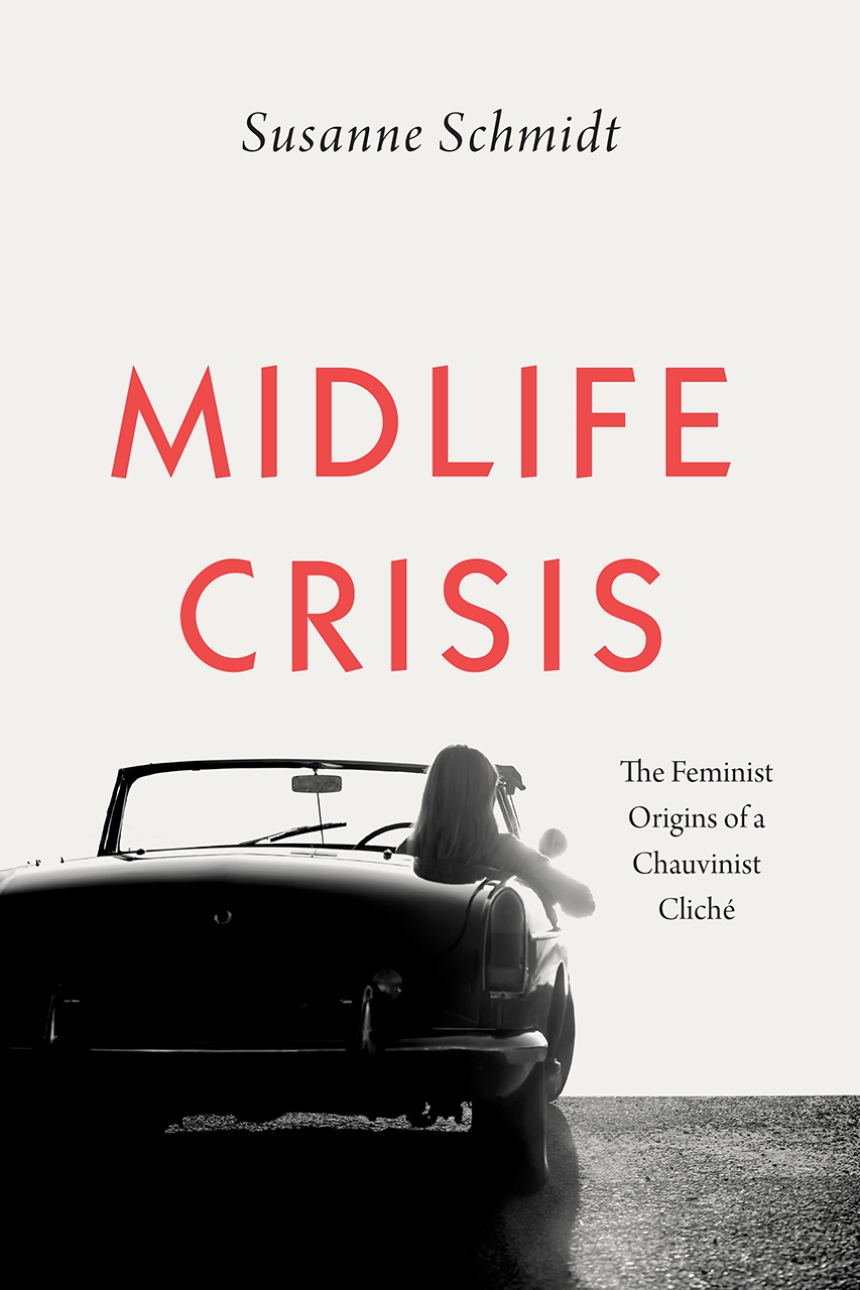Midlife Crisis
The Feminist Origins of a Chauvinist Cliché
9780226637143
9780226686851
9780226686998
Midlife Crisis
The Feminist Origins of a Chauvinist Cliché
The phrase “midlife crisis” today conjures up images of male indulgence and irresponsibility—an affluent, middle-aged man speeding off in a red sports car with a woman half his age—but before it become a gendered cliché, it gained traction as a feminist concept. Journalist Gail Sheehy used the term to describe a midlife period when both men and women might reassess their choices and seek a change in life. Sheehy’s definition challenged the double standard of middle age—where aging is advantageous to men and detrimental to women—by viewing midlife as an opportunity rather than a crisis. Widely popular in the United States and internationally, the term was quickly appropriated by psychological and psychiatric experts and redefined as a male-centered, masculinist concept.
The first book-length history of this controversial concept, Susanne Schmidt’s Midlife Crisis recounts the surprising origin story of the midlife debate and traces its movement from popular culture into academia. Schmidt’s engaging narrative telling of the feminist construction—and ensuing antifeminist backlash—of the midlife crisis illuminates a lost legacy of feminist thought, shedding important new light on the history of gender and American social science in the 1970s and beyond.
The first book-length history of this controversial concept, Susanne Schmidt’s Midlife Crisis recounts the surprising origin story of the midlife debate and traces its movement from popular culture into academia. Schmidt’s engaging narrative telling of the feminist construction—and ensuing antifeminist backlash—of the midlife crisis illuminates a lost legacy of feminist thought, shedding important new light on the history of gender and American social science in the 1970s and beyond.
280 pages | 12 halftones | 6 x 9 | © 2020
History: History of Ideas
Psychology: General Psychology
Women's Studies:
Reviews
Table of Contents
1 Introduction
2 Double Standard
1 Critical Years
2 Emptiness and Obsolescence
3 Prime of Life
4 A New Deal
5 Confidence and Ambition
3 Feminist Origins
1 Investigating New York
2 Inventing a Precursor
3 Critical Stories of Men and Women
4 Stages of Man
5 Hole in the Head
6 Sexual Diamond
7 Reciprocity
4 Serious Sensation
1 Right to Write
2 Spock for Adults
3 Popular Feminism
4 Excited Fans
5 Pop Science
6 A Narcissistic Disorder?
5 Psychology and the Crisis of Masculinity
1 Psychoanalysts and Playboys
2 Second Adolescence
3 Backlash
4 The Original Passages
5 Crisis Time
6 Rethinking Popularization
6 Feminist Riposte
1 Voice and Choice
2 A Different View
3 Regressive Masculinity
4 Superwoman Lives
5 Inability to Change
6 Chauvinist Cliché
7 Feminist Legacy
7 Oldness
Acknowledgments
Notes
Bibliography
Index
2 Double Standard
1 Critical Years
2 Emptiness and Obsolescence
3 Prime of Life
4 A New Deal
5 Confidence and Ambition
3 Feminist Origins
1 Investigating New York
2 Inventing a Precursor
3 Critical Stories of Men and Women
4 Stages of Man
5 Hole in the Head
6 Sexual Diamond
7 Reciprocity
4 Serious Sensation
1 Right to Write
2 Spock for Adults
3 Popular Feminism
4 Excited Fans
5 Pop Science
6 A Narcissistic Disorder?
5 Psychology and the Crisis of Masculinity
1 Psychoanalysts and Playboys
2 Second Adolescence
3 Backlash
4 The Original Passages
5 Crisis Time
6 Rethinking Popularization
6 Feminist Riposte
1 Voice and Choice
2 A Different View
3 Regressive Masculinity
4 Superwoman Lives
5 Inability to Change
6 Chauvinist Cliché
7 Feminist Legacy
7 Oldness
Acknowledgments
Notes
Bibliography
Index
Awards
Society for the History of Science, Medicine, and Technology (Gesellschaft für Geschichte der Wissenschaften, der Medizin und der Technik): Förderpreis der GWMT
Won
